adoptive
”When it’s your kids hitting you, you can’t leave’
https://www.bbc.co.uk/news/articles/cy7gz3xdelno
”When it’s your kids hitting you, you can’t leave’
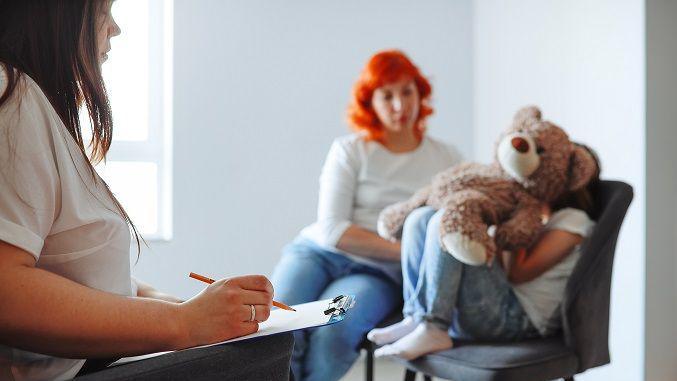
Helen Richardson
Political Reporter, NE & Cumbria
Jane Downs
BBC North East & Cumbria Investigations
- Published16 March 2025
Parents and guardians who have suffered violence at the hands of children in their care say support services are a “postcode lottery”. Despite a seeming rise in attacks, alongside greater awareness, experts agree the problem is not being properly addressed.
Here, one couple share their experience.
“She had me round the throat one day,” Angela, a guardian to a young girl, told the BBC.
“Another time she had me against the bench with a knife at at her throat, saying she was going to kill herself and make me watch.
“That was a really, really scary time that seemed to go on forever.”
After a family breakdown, Chris and Angela (not their real names) took on the care of a female relative who was still at primary school.
Over time, they say, the child’s behaviour deteriorated until the couple realised they were in physical danger.
They were open with social services from the outset, but say their concerns were “minimised” and they were just told to “keep going.”
“What do we do when she’s smashing the house up or when she’s got me locked in a room?”
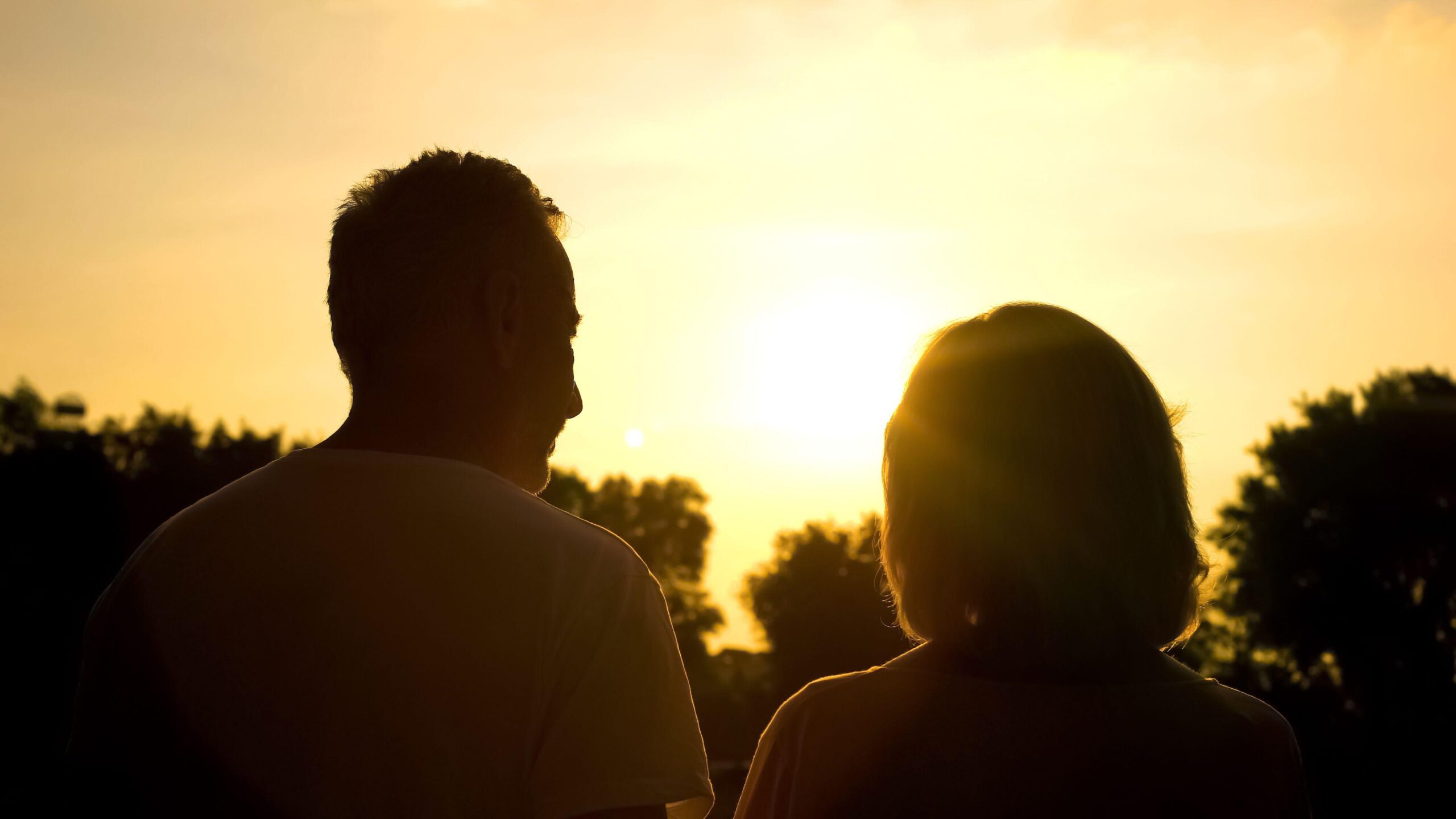
“Things were escalating beyond what was safe,” recalls Chris.
“I felt pathetic, because why should I have to call the police to protect us from an 11-year-old or a 13-year old? It’s humiliating.”
Chris and Angela say they eventually had no choice but to call the police, but attending officers made it plain the child would not be taken out of the situation, nor would charges be brought.
Violence on the rise?
Experts say child-to-parent violence and abuse (sometimes known as CAPVA, CPA or APVA) can be sparked by childhood trauma or a youngster witnessing domestic abuse in the home.
It can also be more common in families with neurodiverse children.
Because there is no standard definition for this type of domestic violence, offences are recorded in different ways across the country meaning it can be difficult to measure the scale of the problem.
We asked 39 police forces in England for the number of reported crimes involving adolescent or child on parent violence and abuse in their areas in 2015, 2019 and 2023.
Of the 17 forces which responded, 10 recorded more cases in 2023 than in 2019.
In north-east England, where Chris and Angela live, North Yorkshire, Northumbria and Durham police did not provide figures, but both Cumbria Constabulary and Cleveland Police reported an increase in cases.
One former social worker – who wishes to remain anonymous – told the BBC she witnessed violence against parents first hand, sometimes from children as young as eight.
She believes that, although the subject is now more openly discussed, services offered by some local authorities have yet to catch up with the level of risk some children present.
“These parents are dealing with this on a daily basis,” she says.
“I think things like social media, trying to manage the use of mobile phones, that’s becoming a real trigger point when they’re trying to put parental controls in place, because children don’t want that and they’re acting out.
“I’ve been in households where I’ve seen significant levels of harm directed towards parents and carers from children and, even with professional intervention to try to de-escalate, it has resulted in police call outs.”
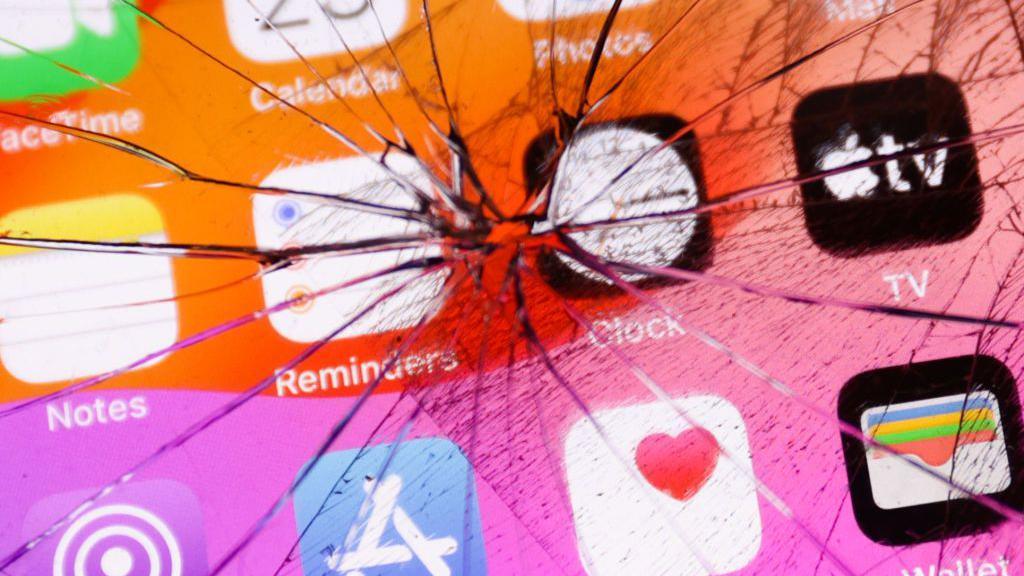
Chris and Angela felt social services encouraged them to offer their child “leeway” rather than making it clear her behaviour was unacceptable.
“We’d tell them ‘look, we don’t think we can go on with this’,” says Chris. “We don’t think this is good for us or her.
“They would just blow smoke up (our backsides) about what a good job we’re doing. We felt hopeless.”
Angla adds: “Now she just thinks this is what people do.
“When you’re in an abusive relationship, you have the option to go. But when it’s your kids you don’t, do you?”
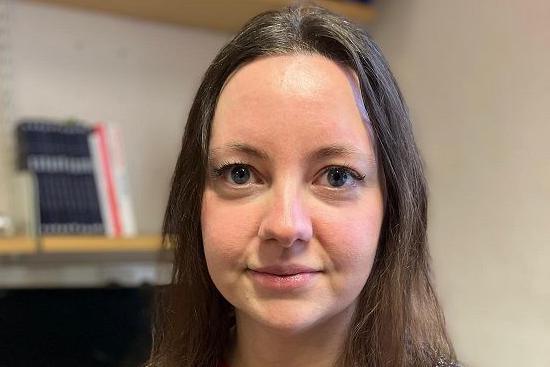
CAPVA researcher Dr Nikki Rutter believes early intervention is key for carers like Chris and Angela.
“Local authorities here in the North East are very good at responding to families where there are very particular high risk needs,” she says.
Dr Rutter points to what she sees as exemplary areas of practice in certain areas of the country, including Wales and Norfolk, but says problems lie in the systems that should refer families for help when they first have issues.
“Early intervention is very, very rarely occurring in any of the local authorities throughout the North.
“They’re dealing with the problem rather than preventing it in the first place.
“Sometimes it can be services saying ‘this isn’t our responsibility’, ‘we’re not commissioned to do this’ or ‘we are restricted in terms of staffing’.
“For those families it must just feel like there’s no way out or there’s not many people listening.
“Families are crying out for help, quite often from the child being four to five years old, and nothing is being done.”
Government plans pending
The government has pledged to halve violence against women and girls in the next ten years.
It says tackling abuse of parents in their own homes is a “vital” part of that challenge.
A Home Office spokesperson said: “We are continuing to develop our specific approach to child-to-parent abuse, taking on board the contributions to last year’s consultation.
“We will set out our plans in this area and respond formally to the consultation in the coming months.”
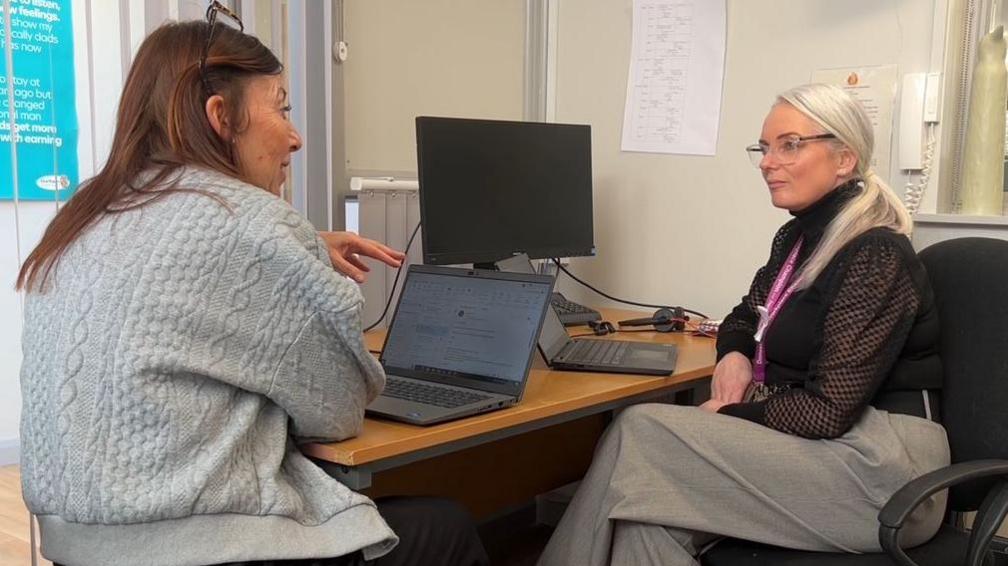
In County Durham, the police and county council have started jointly funding “ambassadors” to run a “Respect” programme with families that need help.
Young people and parents have their own workers who then come together over time to make changes.
Jackie Staff, one of the support workers, says violence towards parents and guardians is only just really starting to be discussed more openly, but things are changing as a result.
“We’re getting some real successes from the families,” Ms Staff says.
“They’re telling us that it is working and the behaviour has reduced.”
But Joy Allen, Durham’s Police and Crime Commissioner, says a lot of parents are still suffering in silence.
“One in 10 women who’ve been murdered by a man have been murdered by their son,” she says.
“That’s a significant fact that we need to address and early intervention is much better than escalating.
“We want people to have the confidence to come to us for support. It isn’t anything to be ashamed of and there is help out there.”
‘Let’s stop pretending’
Angela and Chris are clear about what they think needs to change.
“Definitely funding for children’s mental health I think is a massive thing, but also child-to-adult violence is not talked about,” says Angela.
“Parents are embarrassed. We were embarrassed.
“We didn’t want to tell anyone that this child has been violent. I think that’s a massive issue.”
Chris says he feels seeking support somewhere you can be honest about exactly what is happening is essential.
“Even if it’s Facebook groups, it’s people going through the same thing,” he says.
“Let’s stop pretending that this is not happening, that children aren’t being physically violent towards the parents.
“It takes the adults to do that, because the kids are never going to admit it.”
Adopted children to have closer contact with birth families
https://www.bbc.co.uk/news/articles/c3vl5w3zy2eo
Adopted children to have closer contact with birth families
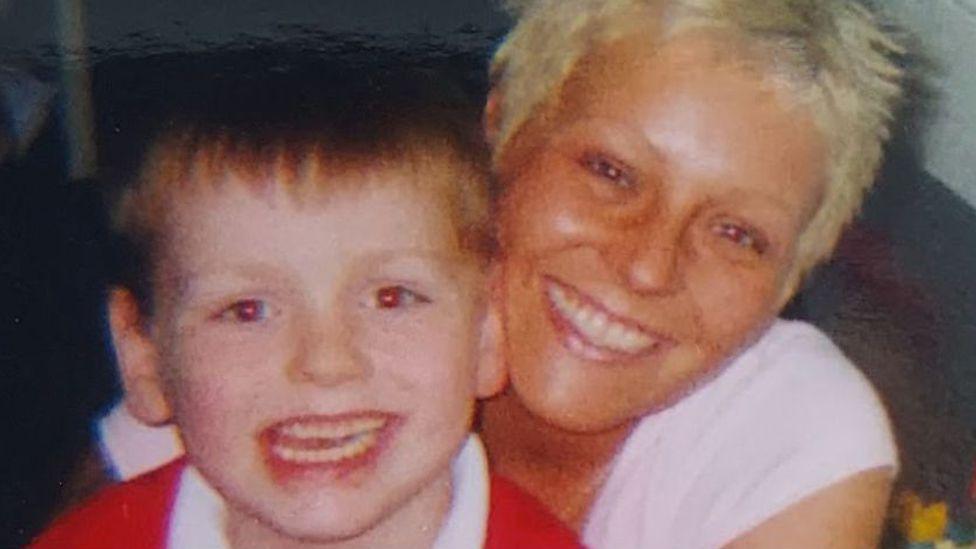
Sanchia Berg and Katie Inman
BBC News
- Published 7 November 2024
Adopted children are likely to be allowed much closer contact with their birth families in the future as part of “seismic” changes recommended in a report published today. Some families say the changes are long overdue but others worry they may deter people from adopting. Angela Frazer-Wicks’ two sons were removed from her care and adopted in 2004, when they were aged five and one. She was in an abusive relationship and had problems with addiction and her mental health. By 2011 Angela had recovered, she was in a new relationship, and had a baby daughter. The local authority was not involved in her daughter’s care. Angela’s sons and their adoptive parents had stayed in touch with her writing letters and sending photos once or twice a year. But when the older of the two boys became a teenager, he told his adoptive mother he no longer wanted to write to his birth mother. Angela carried on sending cards, but heard nothing back for years. Then out of the blue, in 2020, Angela received an email from her eldest son. It turned out he had been trying to contact her, but the local authority had told him that wasn’t possible. Last month, Angela met her eldest son in person – it was the first time she had seen him for 20 years. “It was amazing for me,” Angela says, “even more so for my daughter – she’s waited her entire life to meet her brother.”
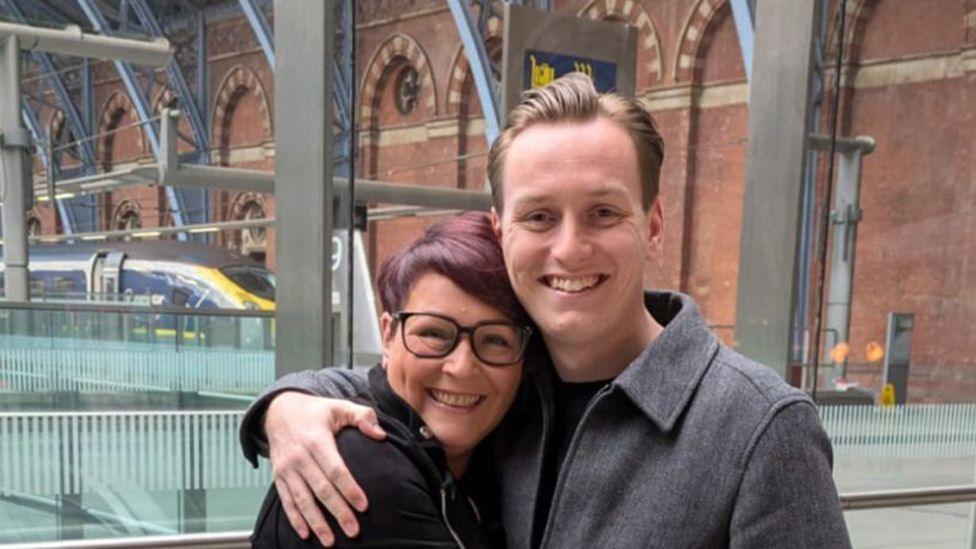
Adoption is the state’s most powerful intervention in family life. It is a permanent break between a child and their birth family, and alters the child’s identity forever. In law they are no longer the child of their birth parents, and most adopted children grow up without seeing or knowing any of their birth family. Around 3,000 children are adopted in England each year. It’s a process that must be authorised by judges in family courts, who set out the level of contact the child will have with their birth parents usually just letters, sent twice a year, via an intermediary. While adoption law has evolved over the years allowing children to know more about their history than they once did, in some ways, families say, adoption is still very much stuck in the past. Now a new report from a group set up by the most senior judge in the family court, external says wholesale reform of the system is needed. “Letterbox” contact between adopted children and birth families is outdated, the report says, instead recommending face-to-face contact where that is safe. The extremely detailed report is strongly supported by Sir Andrew McFarlane who says there is no need to change the law for this to happen. The report is likely to influence family court adoption hearings throughout England and Wales. Angela Frazer-Wicks describes her experience of adoption as a “life sentence without any right to appeal”.
As chair of trustees of the charity Family Rights Group, she is pleased mothers like her will have more chance to continue seeing their children after they have been adopted. “It’s a seismic shift,” Angela says. “It’s been such a long time coming. My hope is that we start to see just a bit more compassion towards birth families – they are so often seen as the problem.”
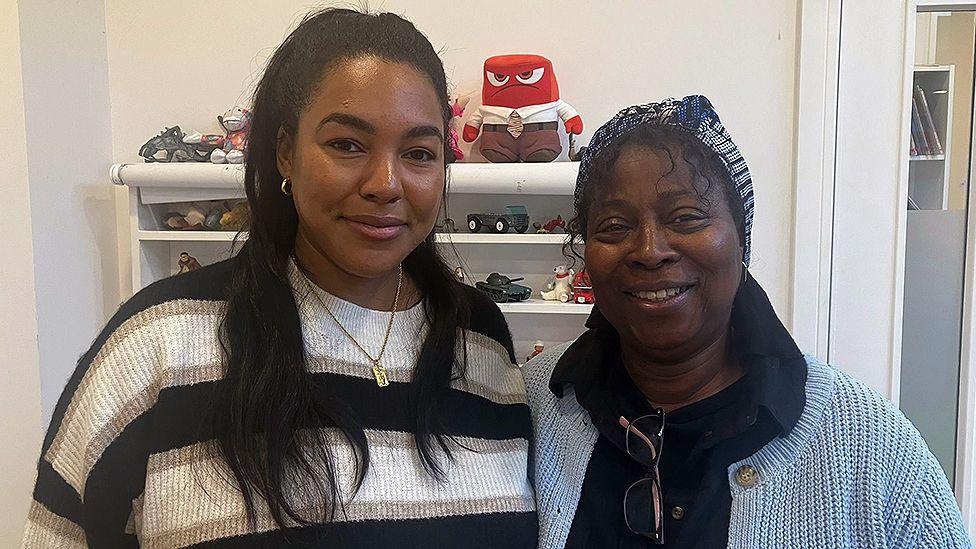
While meeting birth family can be very positive for some adopted children, face-to-face meetings aren’t good for all children in this position. When Cassie was adopted aged three, she constantly worried about the mother she’d been take away from. Out shopping with her adoptive parents Dee and John, Cassie would even ask if she could buy groceries for her birth mum. Dee was advised it would be reassuring for Cassie to meet her birth mother face-to-face. Their reunion, in a noisy contact centre, went well but the following day Cassie was very tired, pale and limp. Dee decided to take Cassie to the doctor, and by the time they arrived at the surgery Cassie was trembling and vomiting uncontrollably. But there was nothing physically wrong the doctor said Cassie was in shock. For nearly two years Cassie and Dee went to specialist therapy. Cassie still seemed to worry about her birth mother, and would try to call her on a toy telephone. Another meeting was arranged, in a quieter environment, with support. After that, Cassie, who is now aged 30, says she didn’t want to see her birth mother again. “I never felt a strong urge,” she says. “I had all the information about her.”
More reporting from family courts
With more recent adoptions, there is a new kind of risk. Children can trace their birth family online and some will go and meet them. That can lead to conflict with adoptive parents, even adoption breakdown. “The children become very emotionally mixed up,” says Sir Andrew McFarlane, the head of the Family Court in England and Wales.
“If you’re trying to work out who you are you in the world, and you have some memory of the family you lived with until you were four or five it’s almost natural to try and trace them and be in touch with them.”
Without expert help, this can have disastrous consequences. In 2021 one couple told the BBC it was “devastating” to see their two adopted sons turn against them and get drawn into crime, after they had been reunited with their birth family. There is no accurate data on how many adoptions break down. The charity Adoption UK has said it varies between 3% and 9%. Following a four-year review and consultation, the 170-page report published today says greater consideration should be given to whether adopted children “should have face-to-face contact with those who were significant to them before they were adopted”.
The report is intended as a review of the adoption process and a “catalyst for positive changes”.
Among the dozens of other recommendations are reforming the law on international adoption, and setting up a national register for court adoption records to make it easier for people to find their own files. The report also recommends dropping the term “celebration” for parents’ last visit to court with the child they are adopting. Many adoptive parents agree the current “letterbox” system of contact is not effective. In a 2022 survey, Adoption UK found that most prospective adopters believed that standardising direct contact would deter people from adopting, at a time when the number of people coming forward to adopt is in decline. But at the same time, it found that 70% of those looking to adopt believed that direct contact should be standard practice, if considered safe. Others think it could create further problems. Nigel Priestley is a specialist adoption solicitor and an adopter himself. He has seen the issues this contact can cause. “I think it’s enormously risky,” he says. “In my view there is a grave danger that if you once open Pandora’s Box shutting it will be impossible.”
A Department for Education spokesperson said the value of children growing up in a loving family “cannot be underestimated”. And for many children in care, “adoption makes this happen”.
“We know that adoption has a profound impact on everyone involved, and it’s vital that the child’s best interests are protected and remain at the heart of the process.”
Clarification 8 November 2024: This story has been amended following updated information supplied by Adoption UK
‘I regret adopting my daughter I feel like I’m babysitting a stranger’s kid’
https://www.mirror.co.uk/news/us-news/i-regret-adopting-daughter-feel-31947707
‘I regret adopting my daughter I feel like I’m babysitting a stranger’s kid’
A mum has sparked outrage after admitting she regrets adopting her daughter as she has never loved her as much as her biological children and still sees her as ‘someone else’s child’
By Paige Freshwater Content Editor
13:38, 23 Jan 2024Updated15:05, 23 Jan 2024
A mum has caused a stir by confessing she regrets adopting her daughter, admitting she’s never loved her as much as her biological children. She shared her story on Reddit, explaining that after having her son through IVF, she chose to adopt for her second child. However, she confessed she’s never been able to bond with her adopted daughter and over time, even began to resent her. The woman wrote: “So years ago before the birth of my first son, I was told it would be hard for me and my husband to conceive. We went through IVF and eventually I gave birth to my son. A few years later we wanted another child but didn’t want to have to go through the time and expense we did the last time with our son. So we decided to adopt. We adopted this beautiful baby girl whose parents were too young to raise her themselves. I loved her so much and treated her no different but I’ve never had the feeling she’s my own. I often feel like I’m babysitting someone else’s child. I feel terrible but I can’t help it. I’ve tried forcing myself to feel it but I just don’t. She’s 15 now and I’ve never felt a connection with her.”
But four years ago, the woman discovered she’d fallen pregnant naturally – and was expecting another girl. This only strained her relationship with her adopted daughter further, as she started to feel more excluded from the family. “We were so surprised since it just happened naturally and we found out it was going to be a girl. During the pregnancy, my hormones were all over the place and I started hating my adopted daughter because I felt if I had just waited then I wouldn’t have to have had her. When my daughter was born everything just felt right. I felt a proper connection like with my son and I bonded straight away.”
In search of sympathy, she confessed: “I sound horrible but adopting her was a massive mistake. I wish I could go back in time. I love her to pieces but unfortunately not as much as my biological children. I hate myself for it since I promised her parents I’d love her no different and I feel like I’ve let everyone down.”
To this, one Reddit user replied: “Therapy for you. Under no circumstances tell your daughter that you don’t love her as much as your bio kids, though that’s something that’s not hard to miss. Reach out to her birth family, if they’re decent people and you haven’t maintained contact, and see if they’d be interested in spending more time with her. This girl deserves to be enthusiastically cared for and loved by the people in her life. What about your husband? Does he feel the same way?”
Another person commented: “Since you already had a biological child you shouldn’t have adopted. I have heard lots of adoptees say they have always felt like they were competing with the biological child of the adoptive parent. I will say at least you have the courage to be honest, which is rare among adoptive parents. Does the child have any interaction with her birth family? Perhaps if she had a good relationship she could go back to them.”
A third person chimed in: “I really hope your adoptive daughter doesn’t know how you feel. Have you looked into professional help for yourself to dissect what’s going on and why you haven’t allowed yourself to bond? There are so many techniques out there that could have been used to create that bond. I know because I used some of them when I struggled to bond with my adoptive daughter. They worked. I feel so upset on behalf of your 15-year-old. I hope she never finds out and that you’ve said this because you want things to change. You can work to repair and create that bond rather than dwelling on the past and your own anger and regret. I hope you haven’t damaged her through any perceptible emotional distance on your part. How dreadfully sad that you still feel you are babysitting someone else’s child after all these years. Please stop dwelling on what might have been and step up to being the best parent you can be to her by seeking help if need be.”